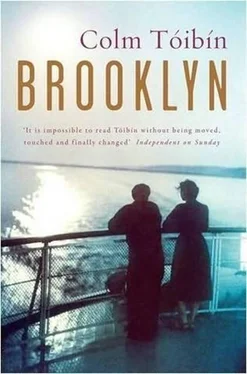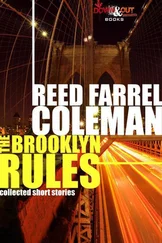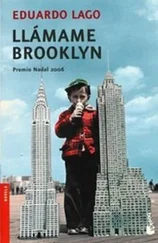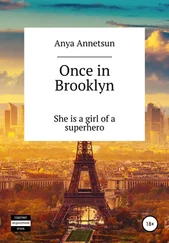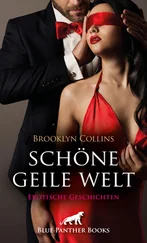She would have to approach Mr. Rosenblum. He seemed so clever and he knew so much that she still wondered as she walked towards the podium how he would respond to a simple request. Once she had his attention, however, she found that she had become, without too much effort or hesitation, almost poised.
"Is there a book I could buy that would help me with this part of the course?" she asked.
Mr. Rosenblum appeared puzzled and did not reply.
"Your lectures are interesting," she said, "but I'm worried about the exam."
"You like them?" He seemed younger now than he did when he was addressing all of the students on the law.
"Yes," she said, and smiled. She was surprised at herself, that she had not stammered. She did not think she was even blushing.
"Are you British?" he asked.
"No, Irish."
"All the way from Ireland." He spoke as though to himself.
"I wondered if you could recommend another textbook or a manual that I can study for the exams."
"You look worried."
"I don't know if the notes I'm taking or the books I have are enough."
"You want to read more?"
"I would like to have a book that I could study."
He looked around the lecture hall, which was emptying quickly. He seemed deep in thought, as though the question perplexed him.
"There are some good books on basic corporate law."
She presumed that he was about to give her the names of these books, but he stopped for a moment.
"Do you think I am going too fast?"
"No. I'm just not sure my notes will be enough for the exam."
He opened his briefcase and took out a notepad.
"Are you the only Irish student here?"
"I think so."
She watched him as he wrote a number of titles on a blank sheet of paper.
"There's a special law book store on West Twenty-third Street," he said. "In Manhattan. You'll have to go there to get these."
"And will they be the right books for the exam?"
"Sure. If you know the rudiments of corporate law and tort, then you will get through."
"Is that book store open every day?"
"I think so. You'll have to go and check it out, but I think so."
As she nodded and tried to smile, he appeared even more preoccupied.
"But you can follow the lectures?"
"Of course," she said. "Yes, of course."
He put the notepad into his briefcase and turned away brusquely.
"Thank you," she said, but he did not reply. Instead, he quickly left the hall. The porter was waiting to lock up when she pushed open the lecture-hall doors. She was the last to leave.
She asked Diana and Patty about West Twenty-third Street, showing them the full address. They explained to her that west meant west of Fifth Avenue and that the number she had been given signified that the store was between Sixth and Seventh avenues. They showed her a map, spreading it out on the kitchen table, amazed that Eilis had never been in Manhattan.
"It's wonderful over there," Diana said.
"Fifth Avenue is the most heavenly place," Patty said. "I'd give anything to live there. I'd love to marry a rich man with a mansion on Fifth Avenue."
"Or even a poor man," Diana said, "as long as he had a mansion."
They told her how to take the subway to West Twenty-third Street, and she decided she would go when she had her next half-day free from Bartocci's.
When the prospect of Friday night arose Eilis could not face asking Miss McAdam or Sheila Heffernan if they were going to the dance at the hall and she knew that it would be too disloyal to go with Patty and Diana, and maybe too expensive as well, since they went to a restaurant first and since she would need to buy new clothes to match the style that they were wearing.
On Friday night after work she came to supper with a handkerchief in her hand, warning the others not to come too close in case they caught the chill from her. She blew her nose loudly and sniffled as best she could several times throughout the meal. She did not care whether they believed her or not, but having a cold, she thought, would be the best excuse for her not to go to the dance. She knew as well that it would encourage Mrs. Kehoe to discuss winter ailments, which was one of the landlady's favourite subjects.
"Chilblains, now," she said, "you'd want to be very careful with the chilblains. When I was your age they were the death of me."
"I'd say in that store," Miss McAdam said to Eilis, "you could get all sorts of germs."
"You can get germs in offices as well," Mrs. Kehoe said, taking in Eilis with a glance as she spoke, making clear that she understood Miss McAdam's intention to belittle her because she worked in a store.
"But you'd never know who'd-"
"That's enough now, Miss McAdam," Mrs. Kehoe said. "And maybe it's best early bed for all of us in this cold weather."
"I was just going to say that I heard there are coloured women going into Bartocci's," Miss McAdam said.
For a moment no one spoke.
"I heard that too," Sheila Heffernan said after a while in a low voice.
Eilis looked down at her plate.
"Well, we mightn't like them but the Negro men fought in the overseas war, didn't they?" Mrs. Kehoe asked. "And they were killed just the same as our men. I always say that. No one minded them when they needed them."
"But I wouldn't like-" Miss McAdam began.
"We know what you wouldn't like," Mrs. Kehoe interrupted.
"I wouldn't like to have to serve them in a store," Miss McAdam insisted.
"God, I wouldn't either," Patty said.
"And is it their money you wouldn't like?" Mrs. Kehoe asked.
"They're very nice," Eilis said. "And some of them have beautiful clothes."
"So it's true, then?" Sheila Heffernan asked. "I thought it was a joke. Well, that's it, then. I'll pass Bartocci's, all right, but it'll be on the other side of the street."
Eilis suddenly felt brave. "I'll tell Mr. Bartocci that. He'll be very upset, Sheila. You and your friend here are famous for your style, especially for the ladders in your stockings and the fussy old cardigans you wear."
"That's enough from the whole lot of you," Mrs. Kehoe said. "I intend to eat the rest of my dinner in peace."
By the time silence had descended and Patty had stopped shrieking with laughter, Sheila Heffernan had left the room, but Miss McAdam, white-faced, was staring directly at Eilis.
Eilis could see no difference between Brooklyn and Manhattan when she went there the following Thursday afternoon except that the cold as she walked from the subway seemed more severe and dry and the wind more fierce. She was not sure what exactly she had expected, but glamour certainly, more glamorous shops and better-dressed people and a sense of things less broken-down and dismal than they seemed to her sometimes in Brooklyn.
She had been looking forward to writing to her mother and Rose about her first trip to Manhattan, but she realized now that it would have to join the arrival of coloured customers in Bartocci's or the fight with the other lodgers on the matter; it would be something that she could not mention in a letter home as she did not want to worry them or send them news that might cause them to feel that she could not look after herself. Nor did she want to write them letters that might depress them. Thus as she walked along a street that seemed interminable with dingy shops and poor-looking people, she knew that this would be no use to her when she needed news for her next letter unless, she thought, she made a joke of it, letting them believe that, since Manhattan was no better than Brooklyn, despite everything she had heard, she was missing nothing by not living there and by not planning to go there too soon again.
She found the bookshop easily and was amazed, once she was inside, at the number of law books on sale and the size and weight of some of them. She wondered if in Ireland there were as many law books and if the solicitors in Enniscorthy had immersed themselves in books like this when they were studying. It would, she knew, be a good subject to write to Rose about since Rose played golf with one of the solicitors' wives.
Читать дальше
